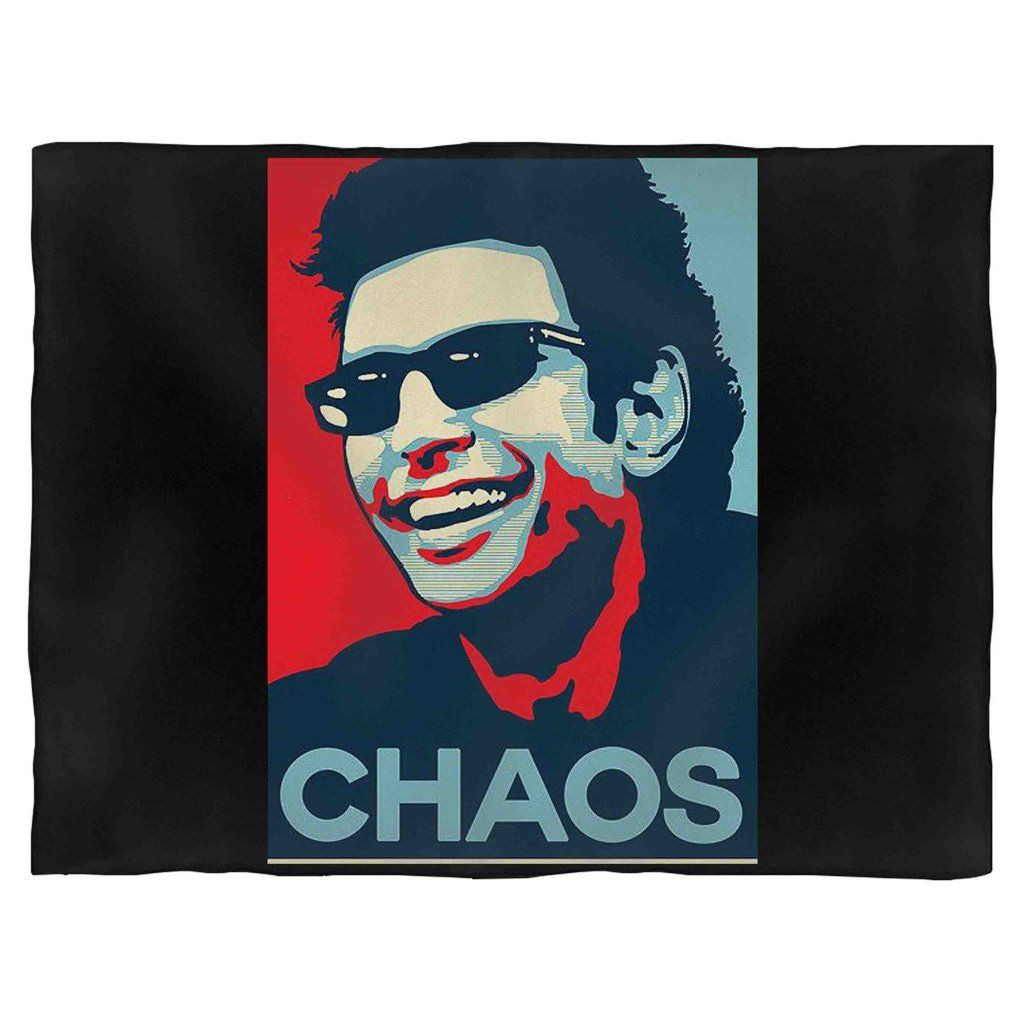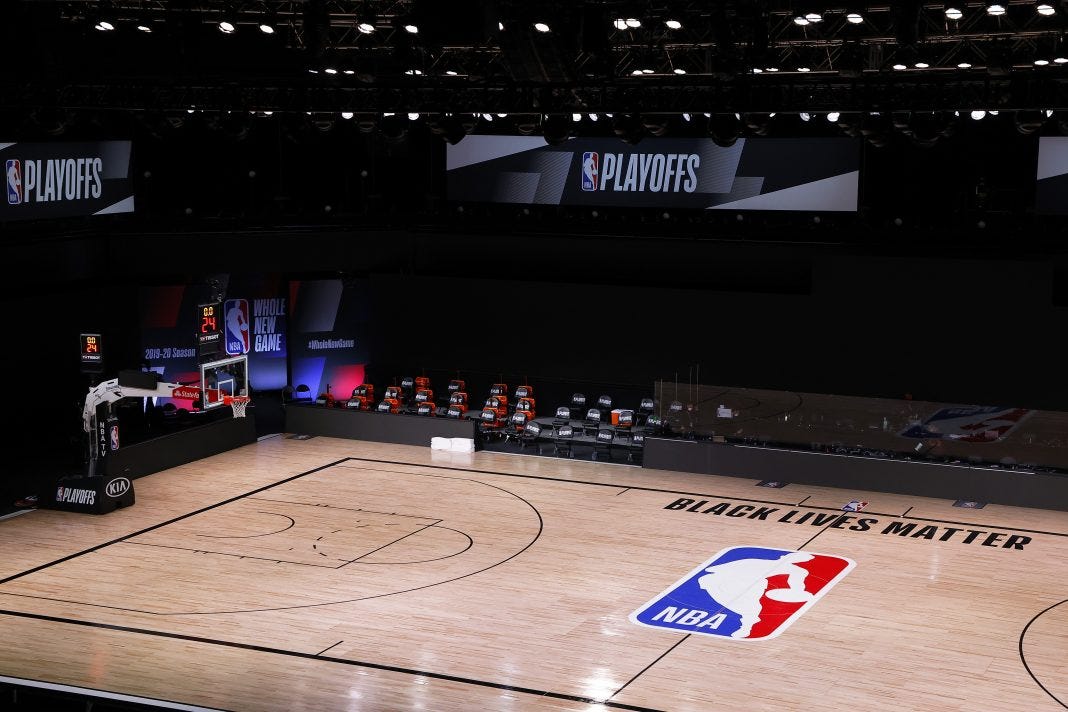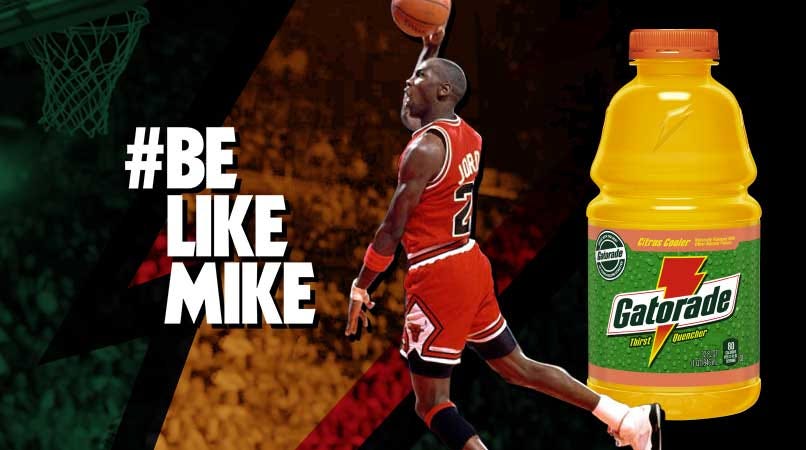To Play or Not To Play
Are we losing sight of the importance of apolitical aspects in our society?
Unless you’ve been hanging out in flatland with Sheldon Cooper, you’re probably aware that a slew of sporting events were boycotted, canceled, or postponed this past week over the shooting of Jacob Blake.
While the NBA playoffs are apparently back on, this last week's events have led me to reflect on the increased politicization of sports and other aspects of our society. Is this development a good thing for society? I’m not very convinced that it is.
Also, is the NBA being hypocritical, is the “great awokening” being arbitrary about what issues matter, and is this all connected to what I’ve begun to call political chaos theory.
Get the Self-Evident Newsletter in your inbox:
Can We Still Be Like Mike?
As a product of the ‘90s, I pretty much idolized Michael Jordan like most boys did (even if as a Jazz fan, I still have strong feelings about whether or not he pushed off on Bryon Russell). MJ was a unifying figure in American culture, unlike what is likely possible in America's present state. I’m sure there are many different reasons for this. He was a singular talent, he never backed down, and he was simply beautiful to watch.
But there’s also something to be said about another aspect of Michael Jordan. Liking him, watching him, and wanting to be like him was a decidedly non-political act. In key moments of his life, Jordan had refused to become a political figure. While this decision is a controversial one among many activists to this day (and something he possibly regrets), it allowed and invited universal approbation. Conservatives, liberals, radicals, and moderates all could be fans of Mike without that fandom being attached to any political position.
Now, don’t get me wrong, I’m not saying athletes, or any public figures for that matter, should just “shut up and play.” I detest the idea of “lanes,” the idea that anyone, for any reason, has less of a right to speak out on important issues. But I do think we’re missing something if we adopt the idea that political activism is the highest form of civic duty and should trump all other aspects of a healthy, civil society.
In order for society to function, it requires that we can “put on different hats.” Not every activity or expression is appropriate or healthy in every circumstance. This idea encapsulates what is often called professionalism.
As both a soldier and police officer, for example, I was encouraged by excellent mentors, and often required by regulations, to be a consummate professional with a clear understanding that many of my personal views and most of my political beliefs ended where my duty began. However important I might believe my viewpoint was, the necessity of maintaining politically neutral military forces and law enforcement agencies was far more important. (This is why two reservists are currently being investigated for appearing in a DNC clip in uniform).
This idea of professionalism extends to most vocations in one way or another. Part of a functioning society is understanding that when we go to work, church, or engage in any activity that involves connection to a group or entity bigger than ourselves, we are “putting on a hat.” Our actions and words should be filtered by an understanding that we are representing more than just ourselves.
Again, this is important for a healthy, functioning society because it aids in creating inclusive environments where we can interact with our fellow citizens without having our differences always starkly in focus. We need times and places where we set aside what divides us. We need events, like sporting events, where we can engage in a non-political activity that brings us together and teaches us just how shallow a reason political disagreement is for disliking each other. Fandom can transcend partisanship in beautiful, miraculous ways.
This is why what I see happening in the NBA, and other sports venues, saddens me and discourages me. For however much these athletes are passionate about their beliefs, the way they are engaging in activism is doing more damage than good. Not only am I not convinced they’re changing any minds, but they’re dragging the political anxieties and resentments that are tearing our society apart into one of the few places left that could be bringing us together.
Arbitrary Wokeness
The NBA’s decision to make itself a political platform also sheds an uncomfortable light on the arbitrary nature of this “great awokening” we find ourselves in.
Just how do we grapple with a sports organization that declares itself a bastion for social justice by allowing their players to kneel during the national anthem, encourages them to turn their jerseys into messaging boards for woke sentiments, and allows their most lucrative exhibitions (the playoffs) to be postponed by political activism but who, not quite a year ago, kicked fans out of stadiums for wielding “Free Hong Kong” signs and had their players engage in morally compromising Chinese apologetics in order to preserve the lucrative Chinese market?
This is just a snapshot of my distrust of wokeness. Far too often, it’s a narrative that presents American history and American society in the worst possible light while ignoring the evils of the world in both history and in recent times (and against which America, even with her flaws, has stood against unlike any other nation in history).
Wokeness is easily criticized as an anti-American narrative whose chief form of activism is unproductive virtue signaling, largely because its adherents have little to no historical literacy and an overgrown sense of self-righteousness that places its priorities above everything and everyone else.
The same mobs that demand we “Say Breonna Taylor’s name,” wouldn’t know what I was talking about if I asked them to say Horace Lorenzo Anderson’s name. The same mobs that demand justice desecrate the statues of those who fought for justice. The same mobs that shout “Black Lives Matter” are silent in the face of black lives lost in circumstances outside the anti-police narrative.
(This is why I like statements of individual value more than statements of collective value. Black Lives Matter is a collective, narrative-based statement that allows its adherents to select what it cares about, namely African-Americans killed by police. Conversely, when I say that A Black Life Matters, I am moving beyond narrative and definitively saying that all African American life has value, as part of the broader truth that all individuals matter. This statement requires that I care about every instance where black life is lost, including those lost by abortion, gang violence, lawlessness, and by the unlawful acts of law enforcement)
Welcome to Progressive Park

This leads me to a quick introduction of an idea I’ve been playing around with lately: the application of chaos theory to politics.
In both the books and the movies of the Jurassic Park franchise, several attempts are made to resurrect dinosaurs and control them as exhibits in a theme park. Each of these attempts end in disaster as the dinosaurs adapt and respond in ways that make control impossible. As the franchise character Ian Malcolm, a mathematician and chaos theory expert, puts it, no matter how much you try to control it, “Life finds a way.”
Similarly, I have been drawing near to a conclusion that the more government tries to control society towards desired ends, the more the system comes under strain as individuals bristle at being treated as constructs. In other words, as the government attempts to assert control over the complex system that is society, it invites chaos because “Freedom finds a way.”
To paraphrase Ian Malcolm, if there's one thing the history of politics and humanity has taught us, it's that people will not be contained. They break free, they expand to new territories, and crash through barriers painfully, maybe even dangerously but...freedom finds a way.
Stay free my friends,
-Justin




